Users Who Spiked
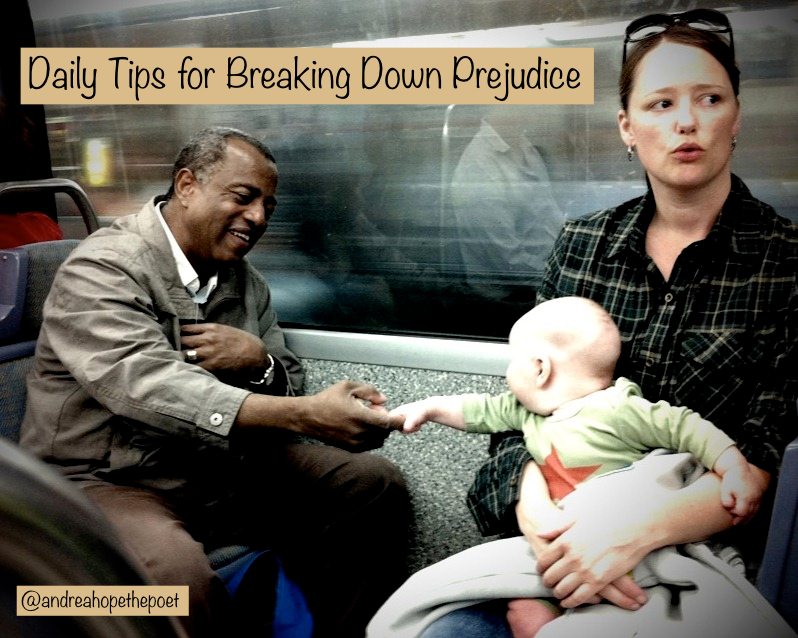
DAILY TIPS FOR BREAKING DOWN PREJUDICE
Private Notes
Private Notes
Notes
Imagine this scenario. You are having serious issues with a product that you recently bought, so you decide to go back into the store and ask for assistance.
There are three customer service representatives available, all middle-aged women, and you find that the only noticeable difference between them is that:
One is wearing a hijab and appears to be of Arab descent
One has curly brown hair and appears to be of mixed African and Asian descent
One is redheaded and appears to be of Scottish descent
In the few seconds you have to make a decision, which representative are you most likely to approach? Your answer in this scenario probably has little to do with conscious feelings towards the customer service reps, and a lot to do with your unconscious comfort. As a young woman of mixed background, I often assume that minority women will be more likely to offer me compassion and support. And those unconscious biases go deep. Studies shared through The American Sociological Association, the Personality and Social Psychology Bulletin, and The National Center for Biotechnology Information suggest that we tend to hire, befriend, and trust people who look similar to us.
Maybe you’ve considered these factors in your day to day decision-making—or maybe you’ve been ignoring them. I would like to suggest that we live in an era where ignoring race and prejudice is just as detrimental to our progress as consciously supporting prejudice. Claiming that we “don’t see race,” gender, or differences can lead to apathy that ignores the life experiences of those around us and fails to reevaluate structures that hinder the establishment of a world that is free from prejudice. But we can choose an alternative. Instead, we can seek out opportunities in our daily lives to counteract prejudice.
Now, it should be made clear that I have no intention to overlook the fact that major efforts are necessary to establish equality and justice in our world. The restructuring of a just society will involve reforming public education, reevaluating our prisons systems, and much more. However, Baha’is believe that society changes through the individual and the community. Focusing on the American Baha'i community, religious leader Shoghi Effendi emphasized in particular that freedom from racial prejudice “should be consistently demonstrated in every phase of their activity and life, whether in the Bahá’í community or outside it, in public or in private, formally as well as informally, individually as well as in their official capacity as organized groups, committees and Assemblies. It should be deliberately cultivated through the various and everyday opportunities, no matter how insignificant, that present themselves, whether in their homes, their business offices, their schools and colleges, their social parties and recreation grounds, their Bahá’í meetings, conferences, conventions, summer schools and Assemblies.” —Advent of Divine Justice, p. 36
With these potent words in mind, I’d like to share some daily tips for breaking down prejudice.
WHEN YOU NEED HELP, ASK SOMEONE WHO DOESN’T LOOK LIKE YOU
In a situation where you need help, instead of acting out of habit or comfort, you can make a conscious choice to do something that may be helpful in breaking down prejudice. Namely, ask for assistance from a person who looks the most different from you. I watched an insightful study, “Kids on Race: The Hidden Picture,” where Dr. Melanie Killen explains that these everyday choices have a powerful impact on conditioning our children, and that they learn about race—and even who they can befriend—through observation. And in a society that usually labels folks with light skin as more trustworthy, the decision to ask for assistance from someone who doesn’t look like you can be very powerful. You may make many of these choices each day, including where you sit on public transport.
BE COMFORTABLE WITH SILENCE
If you are part of a group that normally dominates conversation, try to give more time for others in the group to express themselves. In different cultures silence can mean different things. Often in Western culture, it is taken as a sign of disrespect and ignorance; however, many Eastern cultures view silence as an act of consideration and thoughtfulness. Although our view can certainly be balanced, it is important to be mindful of the role that silence plays when having discussions in a diverse group of friends.
WHEN SOMEONE TELLS YOU ABOUT AN INJUSTICE, DON’T ASK “ARE YOU SURE?”
I have been in several situations where I felt that either I or someone else was treated with prejudice. When sharing these experiences with friends and someone asks, “Are you sure?” it often makes me think I cannot be open and forthcoming with this person. That’s because the question would make anyone feel defensive. Whether intentional or not, asking “Are you sure?” is questioning a person’s judgement and credibility. Instead, ask questions that show compassionate listening and a desire to find truth, questions like “Can you tell me more about what happened?” or “When did you start to feel uncomfortable?”
ANSWER UNCOMFORTABLE QUESTIONS
Sometimes our past experiences can make us feel emotional or insecure when faced with questions about our culture and background. But, I believe that, if friends or coworkers show interest or curiosity about certain aspects of our experiences or history, this is something to encourage. True transformation will take all of us, so it is so important that we connect on an intimate level with others and share our stories. So, in other words, yes, I give my friends permission to touch my hair and we have discussions about the hypocrisy of the “n” word.
CREATE ART WITH DIVERSITY IN EVERYDAY EXPERIENCES
I probably don’t have to mention the “controversial” Cheerios commercial to prove that although we live in an increasingly mixed world, there is still much to be done to create a culture of compassion, collaboration, and respect. And media certainly has a role to play there. I remember a friend telling me that after she and her husband had their biracial twin boys, she realized how difficult it was to find books of kids who “looked like them.” Although there were cultural books, stories featuring mixed or African American children having everyday experiences were hard to come by.
On that note, growing up, I remember feeling relieved and excited to see diverse teens going through everyday life struggles. The couple Shawn and Angela on Boy Meets World and best friends Cher and Dionne on Clueless were a breath of fresh air in the entertainment industry. These shows gave me hope that I could have a “normal” relationship with someone of any background and that deep down, we all have the same desire for love and acceptance. [Update, of course with the rise of social media, I am excited to see many more shows featuring diverse friendships and breaking stereotypes of how people from different backgrounds are represented].
An added bonus were productions like Rodgers and Hammerstein’s Cinderella featuring Brandy, Paolo Montalban, and Whitney Houston, still one of my favorite movies, that makes no issue of race and shows the beauty of diversity, in color and character. [Does anyone know of other movies or shows like this?]
How will you break down prejudice? *Story originally published on www.nineteenmonths.com, December 2014. Cover photo by Sean Bonner.*
Comments
Please login to post comments on this story
-
Hi. I really appreciate your tips for fighting prejudice. I actively try to police my thoughts and my actions to be more inclusive, but then I don't want to approach people of color with a million questions about their background. So I feel like I struggle with that line between showing respect for their culture and making them feel "othered." Your article makes me realize that I could be doing more to respect diversity. I have a podcast where I try to feature female scientists as much as I do male scientists, but I haven't made much of an effort to include scientists of different ethnic backgrounds. In fact, I think I've only featured one person of color. So, I'm going to work on that going forward. I don't use images of people much in my marketing for the podcast, but if I do, I'll remember to choose images that show diversity. Thanks!
-
And in a society that usually labels folks with light skin as more trustworthy, the decision to ask for assistance from someone who doesn’t look like you can be very powerful.
This is something that really stuck out to me, that was thought-provoking. What about this in the same community. Like colorism in the black community. In the statement that society seems light skin as more trustworthy, how would this affect a personal of dark-skin in the black community, when choosing to ask for help from someone like them? Can it be that that person may tend to see that same sentiment as more trustworthy, and then potentially more likable and attractive? Or would it have the said intent of this article where if the person has negative prejudices against those group of people maybe because of the sentiment that lighter skinned is better and more trustworthy (so maybe that individual began to gain a disdain and mistrust for lighter skinned people), then will gain a more equal level of respect and like from them as an equal of themselves, and no longer sees issue with them from that negative rhetoric they once had through society's notion of better than between the two groups of people? -
If you are part of a group that normally dominates conversation, try to give more time for others in the group to express themselves. In different cultures silence can mean different things.
I did this all the time in college. I'm introverted (well more like an ambivert with a heavy lean towards introvert), but I'm very sociable (depending on the subject and approach) and opinionated, but in my college course I always made sure I gave everyone else a chance to talk and expresses themselves. I would be in a group and I would literally ask everyone else for their opinions. Being an empath as well, I could tell when some people felt minimized under a boss-like or overall confidently stern individual of the group, so I would speak out to make a way for them to be heard. So many great things about this article. Really great work Andrea! -
Hi Andrea. I couldn't find a way to comment on your reply to my initial comment, so I'm putting my reply here. My podcast is called Fungi Town. I talk about molds, mushrooms, and other fungi. I think it's an underrepresented group in biology and I want to help people understand all the ways (good and bad) that fungi affect our lives. In each episode, I interview guests who interact with fungi professionally in some way, like scientists, hobbyists, and growers. I generally look for guests based on the topic I want to talk about, but I'd like to find a way to include more diversity in my show. If you have any tips, I'd love to hear them!
-
I probably don’t have to mention the “controversial” Cheerios commercial to prove that although we live in an increasingly mixed world, there is still much to be done to create a culture of compassion, collaboration, and respect. And media certainly has a role to play there. I remember a friend telling me that after she and her husband had their biracial twin boys, she realized how difficult it was to find books of kids who “looked like them.” Although there were cultural books, stories featuring mixed or African American children having everyday experiences were hard to come by.
I agree! Art and the media play a big role in what people consume and think is "normal". Great tips and thanks for sharing Andrea! -
This really includes some great things to think about.
-
I would like to suggest that we live in an era where ignoring race and prejudice is just as detrimental to our progress as consciously supporting prejudice.
I totally agree! It irritates me when people say they are "color blind". I get what they are trying to say, but it's a total lie! Everyone notices the differences between themselves and others. Taking the time to appreciate and learn about those differences is way more progressive toward making a change than pretending like the differences aren't there at all. This piece is very well-written and so relevant. Thanks for sharing!



















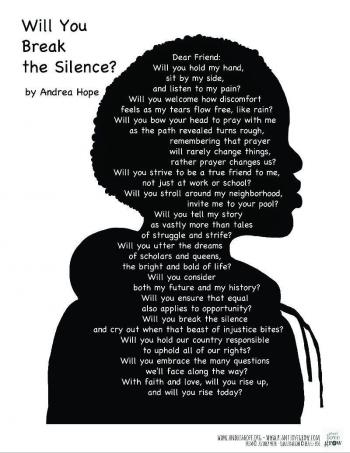
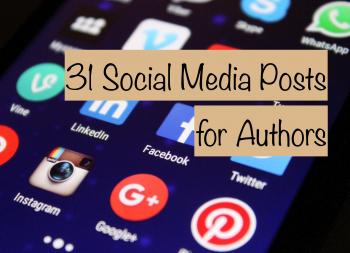



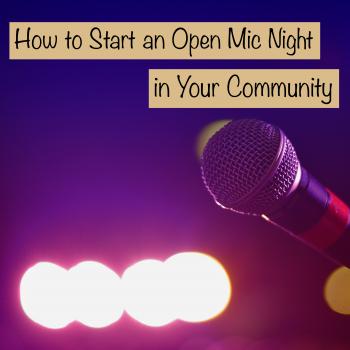



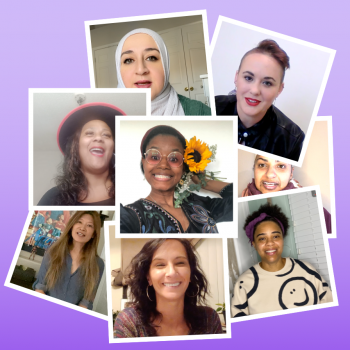

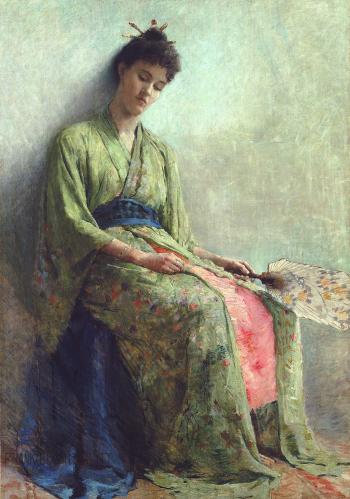
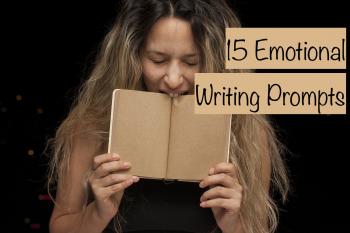



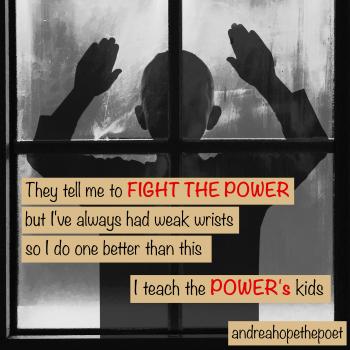

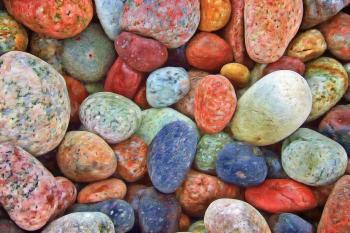
Hi Jen, I think you have made a wise observation. Not all people of color feel comfortable talking about their background; that's why I included the tip about answering uncomfortable questions, because I would like to see people of color also become more open. For now, I believe it's best done on an intimate basis, so with friends, coworkers or people you interview. A lot of times it doesn't need to be a direct question like, "How has race affected your life?", questions like "What was your childhood like?" or "How do you think we can make STEM more accessible for all people?" are questions you could ask anyone, and it would give an opportunity for someone to choose whether or not they talk about race. What's your podcast called?